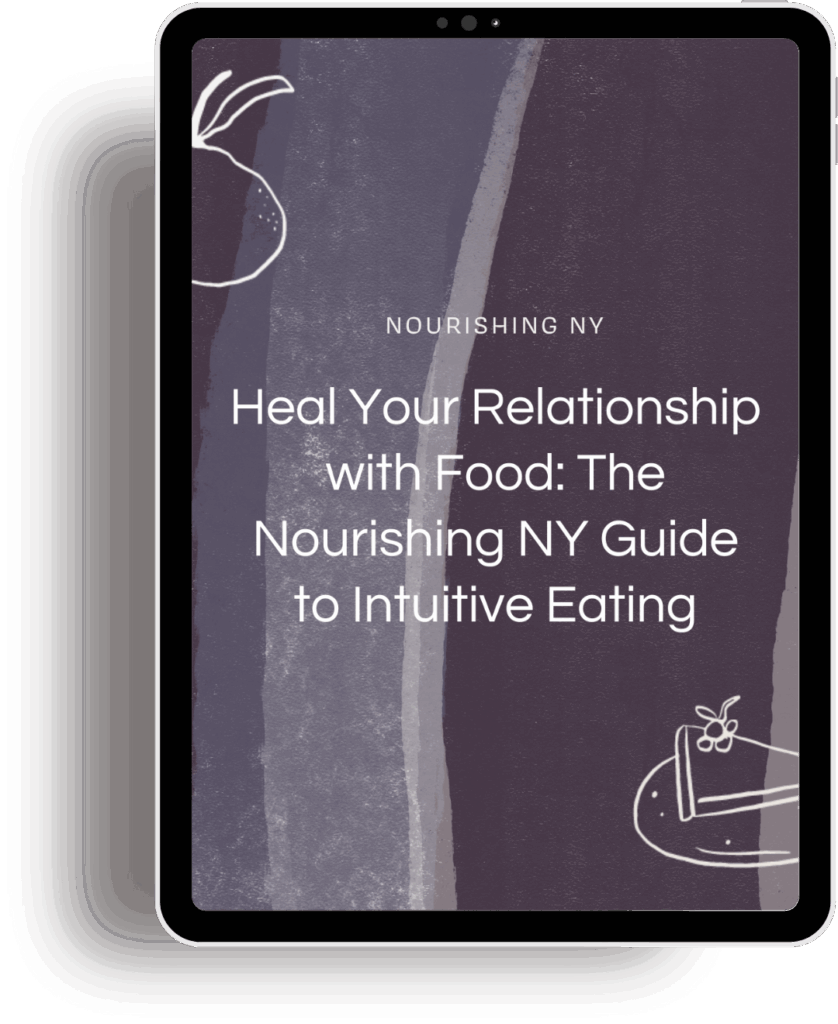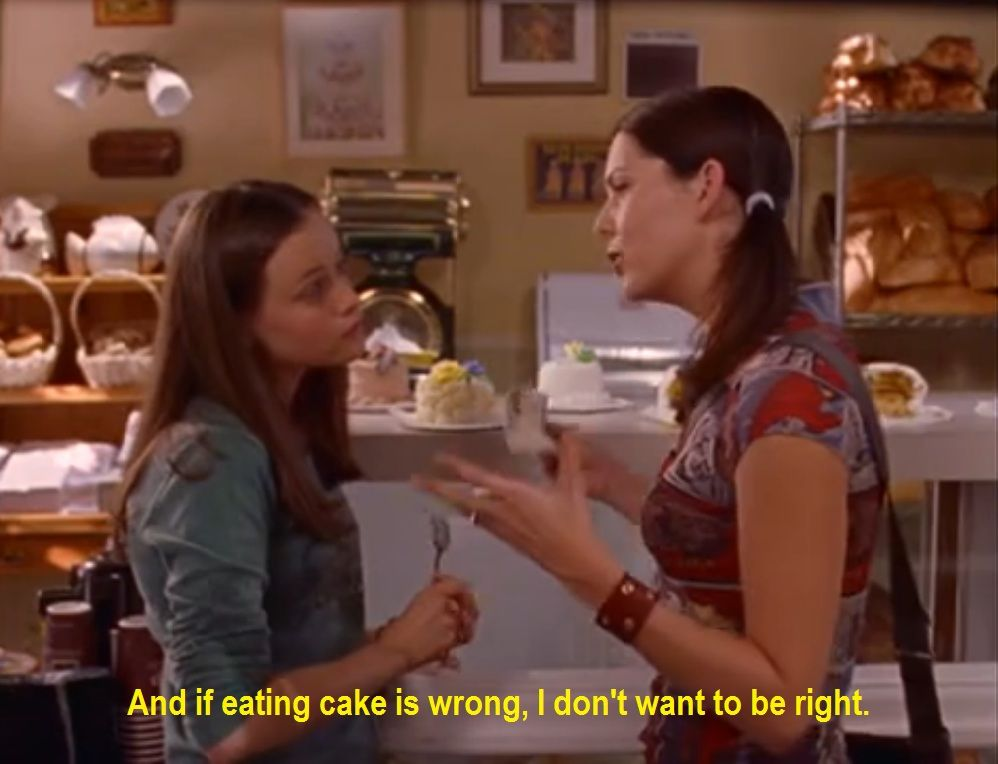First and foremost, Intuitive eating is not a diet. In fact, it is a non-diet approach to eating that allows you to listen to your fullness and hunger cues and stop the vicious cycle of crash dieting. This evidence-based method of eating was created by two dietitians, Evelyn Tribole and Elyse Resch in 1995.¹ With Intuitive eating there is no tracking of calories, carbs, macros or elimination of food groups. Restricting amounts and types of food can cause our bodies to go into starvation mode where it will try to survive on the limited amount of energy it is given. It is all about trusting your body to let you know what you need. Eating in accordance with your internal cues rather than the food rules tied to diets will help to mend your relationship with food.
From the moment we are born, we are intuitive eaters. Crying when hungry, eating until we are full and satisfied, and then wanting food once we become hungry again. As we get older we ultimately lose that natural intuitive eater inside of us. Puberty can initially trigger eating disorders as young males and females fear the physical changes of a body they have comfortably lived in up to this point. For example, learning that menstruation will begin when girls have a certain amount of body fat, can sometimes lead to the thinking that getting your period means you are overweight and “fat”. It is important for health professionals and families to tell young girls how healthy this is for their bodies. All adolescents deserve to feel accepted and confident in their changing bodies, especially at home, since the outside world is hard enough to navigate with the amount of social messages about bodily imperfections. Families should avoid comments about eating and exercise to allow for adolescents to form a healthy relationship with food.
The ‘rules’ and restrictions around food that come into play throughout our life also keep us from channeling our natural intuitive eater. Having to eat everything on our plates and viewing dessert as a reward are just a couple examples of these ‘rules’ that we are taught. Eventually this turns into labeling foods as ‘good’ and ‘bad’ which can trigger negative feelings when we eat certain foods over others. Diving back into intuitive eating means that we must relearn what it was like to not eat within these rules of restriction that come with a diet mentality.
The mind-body health approach of Intuitive Eating is comprised of 10 principles:
-
Reject the Diet Mentality
-
Honor Your Hunger
-
Make Peace with Food
-
Challenge the Food Police 👉 Choosing food you like and allowing yourself to enjoy it
-
Discover the Satisfaction Factor 👉 Eating when hungry and stopping when satisfied
-
Feel Your Fullness 👉 Not stopping because you think you should!
-
Cope with Your Emotions with Kindness
-
Respect Your Body
-
Movement – Feel the Difference
-
Honor Your Health – Gentle Nutrition 👉 Giving thought to picking nutritious foods, but never being so restrictive that you miss out on something more enjoyable
You will not find one long-term study that shows sustainable weight loss after dieting. Instead, results show that using dieting and restriction to lose weight only leads to more weight gain. In addition, many can experience poor body image due to this preoccupation with food and weight. When dieting, our food choices are influenced by what, when, and how much to consume. These are considered external factors and we ultimately use them to manipulate our weight and appearance. Diet culture tells us that our body size and the foods that we eat determine our self-worth. We are ‘good’ if we restrict our intake to obtain a smaller size, and we are ‘bad’ if we embrace our body and challenge arbitrary food rules. Once we tell ourselves that certain foods are off limits, they immediately become more desirable. You are much more likely to overeat once you have access to them since you don’t know when you will be able to eat them again. This falls under the category of food habituation: the more you are exposed to a certain food, the less you notice or care about that item. Allowing yourself the freedom to leave a few cookies on the plate knowing you can have them again tomorrow or even the next day allows you to make peace with these foods and your body.
You are the one that knows your body the best. Listen closely to what it is telling you. This is the first step to honoring your health.
Sources: Tribole E, Resch E. Intuitive Eating: A Revolutionary Program That Works. St. Martin’s Griffin; 2012.



